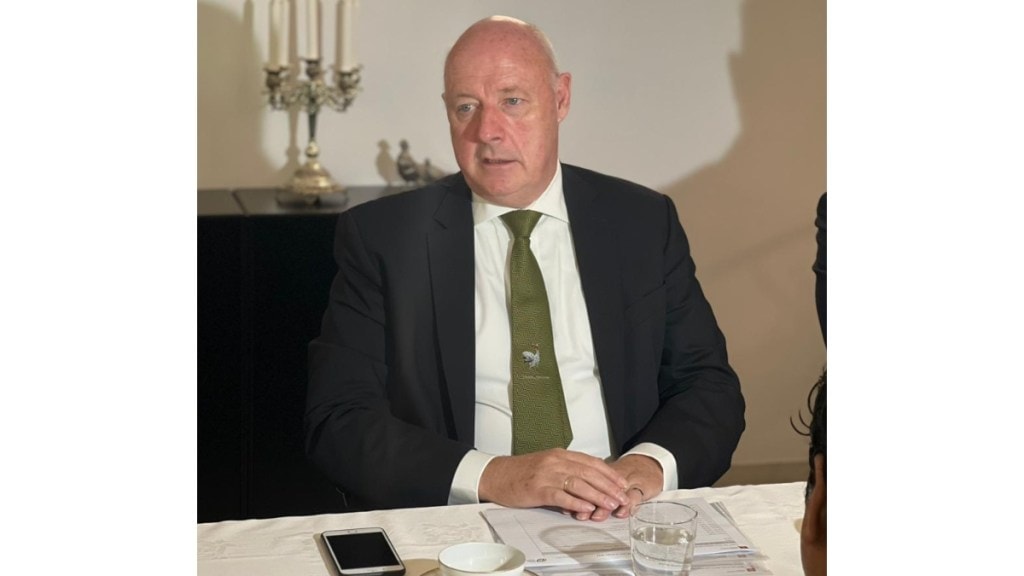Based on the Green Strategic Partnership, Denmark will expand its cooperation with India on energy and climate change. Denmark will focus on the environment, water and circular economy, including sustainable urban development, says the Danish envoy to India, announcing the visit of the high-level Danish delegation to India. The high-level delegation is expected to arrive on 26 February in New Delhi. The delegation will engage with External Affairs Minister, S Jaishankar among others.
India and Denmark both have ambitious goals within the climate agenda. India is the world’s third-largest CO2 emitter and by 2030, the country is expected to have doubled its carbon emissions. The Danish government has the ambition to reduce CO2 emissions to per cent by 2030 and aims to undertake international leadership on SDG 7 on affordable and clean energy.
“By partnering, India and Denmark will demonstrate to the world that delivering ambitious climate and sustainable energy goals is possible,”
“So, we need to have close collaboration with India. We are ready to invest even more in India. And given the number of Danish commenters participating is a significant showcase of why India is important, why India is the future and also for the green transition. There is no doubt that without India we will not be able to solve any of the global issues and we will not be able to solve the climate issues,” Danish Ambassador Freddy Svane said.
In 2020, Danish prime minister Mette Frederiksen and Prime minister Narendra Modi co-chaired a Virtual Summit between India and Denmark. Here, the two prime ministers agreed to elevate the Indo-Danish relations to a Green Strategic Partnership after an exchange of views on bilateral relations, including climate change and green transition.
“It shows that India has matured and Danish companies have matured and now we are really moving towards even closer relationship. It all boils down to a green Strategic Partnership, which is to combine the missions of India whether it’s the Swachh Bharat Mission, whether it’s green hydrogen or visit Bharat, which we are all part of and we want to bring in all our competencies, skills and technologies,” emphasized Ambassador Freddy Svane, outlining the importance of the visit.
Green strategic partnership
The Green Strategic partnership builds on and consolidates the existing agreement establishing a Joint Commission for Cooperation between India and Denmark.
“The partnership is a mutually beneficial arrangement to advance political cooperation, expand economic relations and green growth, create jobs and strengthen cooperation on addressing global challenges and opportunities. It will build upon an ambitious implementation of the Paris Agreement and the UN Sustainable Development Goals,” explained Danish Ambassador Freddy Svane.
Based on the partnership, India and Denmark will expand their cooperation on energy and climate change. Denmark will focus on the environment, water and circular economy, including sustainable urban development including smart cities. Both countries are cooperating in water efficiency and non-revenue water (water loss). In this context, the Indian Ministry of Jal Shakti and the Danish Environmental Protection Agency and the Danish Ministry of Environment and Food is already working on the plan for an initial period of three years (2021-23).
He outlines that India has accepted to use of the word green growth. “Early on, it was about energy transition, and so forth. But the prime minister said, now, let’s have green growth. And that’s the future. And that’s why Denmark is a strategic partner in that context there, Ambassador Svane remarks.
The India-Denmark Energy Partnership (INDEP)
The energy cooperation marks the centrepiece of the government-to-government cooperation on energy between India and Denmark, highlights Ambassador Svane. The INDEP is a 5-year programme running from 2020-2024, The program is implemented in collaboration with the Indian Ministry of New and Renewable Energy and the Indian Ministry of Power as well as their relevant institutions in India.
The INDEP partnership is based on the integrated approach to offshore wind power deployment applying international experience in planning, regulation, and integration into the power system. It also talks about the global standards in tendering mechanisms and the mobilization of investment and finance in offshore wind power deployment.”
In this regard, a joint Centre of Excellence for Offshore Wind and Renewable Energy between the Indian Ministry of New and Renewable Energy and the Danish Energy Agency has been established.
We are bringing 26 energy companies from Denmark. So, the energy companies comprise offshore developers, wind companies, OEM manufacturers, and then we have green hydrogen to talk about, said Ambassador Svane on the impending visit. He adds, they are then going into partnership with Indian companies.
Denmark is also in talks with Tamil Nadu to expand its footprint in green energy as the state is likely to see a $5-10 billion renewable sector investment from Danish companies, including an energy island in the Gulf of Mannar. The island will have the capacity to produce 4-10 GW.

